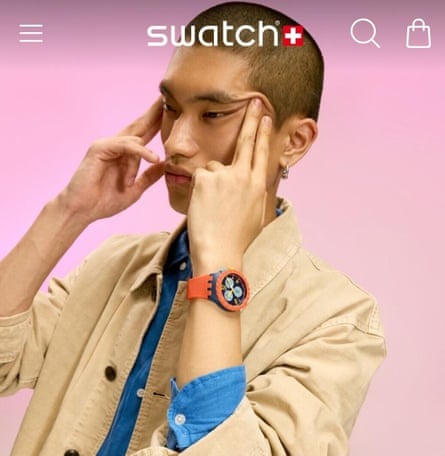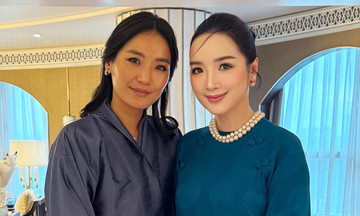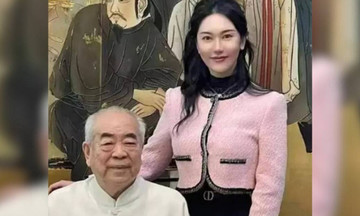Swatch has apologized and withdrawn an advertisement featuring a model pulling their eyes into a slanted shape after facing criticism on Chinese social media. The image, part of the Swatch Essentials collection, sparked widespread condemnation, with many commentators arguing it mocked Asian features.
In a bilingual apology posted on Weibo on 16/8, Swatch acknowledged the concerns and confirmed the removal of all materials related to the campaign globally. "We sincerely apologize for any distress or misunderstanding this has caused," the company stated on Instagram.
This controversy presents another challenge for the company, whose stock price has halved since the start of 2023. Swatch also faces a 39% tariff on exports to the US.
 |
The model pulls their eyes into a slanted shape in the Swatch advertisement. Photo: Swatch |
The model pulls their eyes into a slanted shape in the Swatch advertisement. Photo: Swatch
China is a significant market for Swatch, which also owns Omega, Longines, and Tissot. Approximately 27% of the group's 2024 sales came from mainland China, Hong Kong, and Macau.
The watchmaker's revenue dropped 14.6% to 6.74 billion francs (8.4 billion USD) in 2024, partly due to declining demand in China. Swatch attributed this to persistent difficult market conditions and weak overall consumer demand in the country.
Creating slanted eyes is widely considered offensive towards Asians. Historically, in the 1930s, this gesture was used in the US to discriminate against different Asian nationalities: pulling eyes upwards to mock Japanese people, outwards for Chinese people, and downwards for Korean people.
More recently, the "fox eye" makeup trend, featuring elongated and upswept eyeliner, has been criticized as cultural appropriation and denigration of Asian features, despite its popularity among young people worldwide.
This is not the first time a major brand has faced such criticism. In 2023, Dior issued an apology to China and removed an image featuring a model with slanted eyes from a cosmetics advertisement.
Several other fashion houses have been accused of racism in recent years. In 2018, Prada withdrew products after some items displayed in Manhattan were seen as caricatures of Black people. That same year, Dolce & Gabbana faced a boycott in China over an advertisement depicting an Asian model struggling to eat Italian food with chopsticks. In 2019, Gucci stopped selling a sweater resembling blackface after it sparked outrage.
Hoa Mi (Reuters)











